- Home
- Bill James
Disclosures Page 12
Disclosures Read online
Page 12
Occasionally he thought of The Monty as a kind of social symbol. He tried to bring order and harmony to the club, just as Harpur and Iles tried to bring order and harmony to their manor, but all the time they were beset by those bringing only trouble, lawlessness, and defiance. It depressed Ralph to recognize that when he looked at a Christmas tree, with all its holy significance, he had to consider it above all as a potential destructive menace.
But, of course, there’d been a time way back when he felt himself threatened by a much larger destructive menace.
TWENTY
He served a few more drinks then went upstairs to the club office, dishing out additional smiles and minor nods to patron slobs and slobesses en route. It was the least he could do, so he did it. The smiles were what he would regard as manly smiles, not sickeningly full and lavish, not love-me-do-I’m-harmless, but brief, brisk and better than nothing.
He reckoned that if you’d discovered some people called you ‘Panicking Ralph’ or ‘Panicking Ralphy’ behind your back you’d need to be guarded with your smiles in case you were smiling at some of the people who actually called you ‘Panicking Ralph’ or ‘Panicking Ralphy’ behind your back. These smiles had to be formal, of no deep worth. They were conditional smiles and did not suggest buddydom or fondness or forgiveness. When people took out membership of The Monty they didn’t also take out a right to unlimited geniality from The Monty’s owner.
In the office, he opened the safe and produced a blue-covered, foolscap ring-binder. It contained four pages of handwritten, pencilled notes, each page roman-numbered top left – i, ii, iii, iv – the dots very strongly applied, as if to confirm the complete reliability of whatever was said on each sheet. Ralph believed you would never get dots like that on rubbish. Poor material would be a betrayal of the dots. These dots had chutzpah but also robustness and dignity.
He hated sloppiness in anything written down. He liked stuff to look as authoritative as a legal document, even if done by hand and in pencil. Good presentation cost nothing except, possibly, a few extra moments of carefulness. It showed respect for the reader. In this case, because the pages were usually locked up, the only reader would be Ralph, but he considered that as a quibble and believed the principle should operate generally. Everybody recognized that one of the great things about the Roman Empire was the quality of what would be called now its civil service. This had been based on that special numerals system, though Ralph realized it wouldn’t have seemed special to them at the time, just everyday, and the only numbers around. It was quite a while before Arab figures took over. That didn’t mean he disdained Arab numerals, or regarded them as iiird rate. After all, he used them, not roman, when totting up profits from both his businesses, and Arabic coped OK with these totals: no shortage of noughts to give the thousands, ten thousands and hundreds of thousands. It was merely that he would prefer some documents to have the dynamism given by roman. In Ralph’s view, everybody needed certain themes and/or missions in their life, and this occasional use of roman figures was one of his, or, as he sometimes waggishly thought of it, i of his.
The notes were an account of a conversation with Dale Hoskins following that extraordinary vigil in the hairdresser’s porch. Well, he reckoned it could even be termed a ‘unique vigil’. Few, if any, people would have watched from a unisex hairdresser’s deep doorway a detective superintendent of the Metropolitan Police seemingly flirt with a statue of an alderman. Gladhand had owned a tall house in Cheyne Walk, Chelsea, not far from where Sir Mick Jagger once lived, and not far, either, from the house where Gerry Adams and Martin McGuinness had secret peace talks with the British government in the 1970s about the troubles in Ireland.
When Ralph telephoned to say he had something urgent to discuss, Gladhand invited him over. Dale appreciated that kind of glossy street. It gave him what he called ‘a suitable background’. It had what he described as ‘an aura’. Although you never saw auras mentioned in property For Sale bills, an aura might be present owing to history and setting. Auras cost, but could be vital to someone like Gladhand. He’d come on extremely fast in the substances craft but Ralph knew he didn’t want to appear as just a remarkable very sudden success. There’d be something fragile and short-term spectacular about that. He needed strong auras and backgrounds to give him true, lasting stature, not the stony kind of the alderman, of course, but a living resoluteness and durability. Everyone knew the story of that young man who made himself wings, stuck them on his body and flew very impressively up and up until he got too near the sun and the inferior wax he’d used melted, so the wings came off and he dropped down into the sea faster than he’d climbed. This was an old Greek tale and it disappointed Ralph that the expensive school his daughters went to did this type of yarn in English, instead of teaching the proper classical language. Ralph would guard against that kind of catastrophic tumble.
It certainly hadn’t been usual for Ralph to write summaries of Pasque Uno matters. Words on paper could be turned against you as evidence if things went rough, just as words on tape did for Nixon. But Ralph had sensed ahead of the meeting with Dale at his home that this was going to be a very cruxy kind of occasion, and should get properly minuted. It would most likely involve a major strategy survey, even though Ralph had been only a raw starter in the Pasque Uno company, nowhere near policy-making level. When a school kid, he and his pals used to call birds just out of the nest ‘yuckers’. He had been a Pasque Uno yucker.
At that stage, he’d been proud to serve in PU at all, even as a yucker, or less than that if required. He’d revered Gladhand and the firm. In case any decisions should change this relationship, Ralph had wanted permanent, written testimony to prove he’d done nothing stupid or cowardly or careless that might have spoiled, even destroyed, his esteem for PU and its chief. Or, to give the positive side, he’d felt he needed an honest schedule of events preserved, to reassure himself in the future that he had behaved properly, loyally, intelligently, although a yucker.
Ralph had been to the Cheyne Walk house several times before. He liked the butler, Pedro, from abroad somewhere, but able to fit in, as certain overseas people could: think of William the Conqueror. Pedro preferred to keep his automatic at waistband level, rather than in a shoulder holster. Most of the domestic staff were foreign. Probably Pedro was wanted by the police in his own country, so Gladhand had given him a niche. That would be typical of Gladhand. Practical. Quite often humane as long as it wasn’t inconvenient. He objected to immigration, but if immigration happened on quite a scale, anyway, he’d want to get a plus or two out of it, such as more customers for coke, et cetera, and Pedro. Gladhand believed in making unfavourable conditions favourable. This was the new alchemy. This was leadership. Very few houses in Cheyne Walk would be without a butler. Gladhand was sure to want at least parity. That was part of the required background and aura.
Within a couple of hours of the meeting with Gladhand there, Ralph had set down his recollections of it thoroughly and, he’d swear, accurately. He’d heard of aide memoires – written accounts of recent verbal agreements or discussions. Ralph had intended his aide memoire to prove he’d acted only and entirely for the good of Dale and PU – possibly for the safety and survival of Dale and PU. He’d guessed this might be disputed by evil, scheming maniacs like Quent Stayley. Ember would need to see off these doubters and the aide could get itself translated and aid him with that.
Also, looking at these foolscap sheets now, in The Monty office, Ralph had an idea that one day, because of a very worthwhile, interesting life on a number of social, commercial and intellectual levels, he might wish to write his memoirs, or even a full autobiography, especially after he’d moved the club up to Athenaeum status, or above. The notes would be such a help then. He understood there was a good market for the life stories of celebrities told by themselves. Although he did not consider himself a full-scale celebrity at present, there might be enormous developments over the next few years. It wouldn’t be necessary to put
in anything about the shot William Blake, nor the ruined Worcestershire sauce bottle. These were demeaning incidents, not flattering to Ralph or the club, or English literature. But, by then, The Monty would have been transformed, and that unhelpful episode of no account.
Ralph had viewed Pasque Uno as similar to one of those professional livery companies, or a Masonic lodge, which demanded, and deserved, a member’s absolute commitment. But he’d feared his beautiful bond with Pasque Uno could come under massive strain because of what he would reveal about the Davidson sighting. He had hinted at that strain in the imaginary, flashback talk with Margaret. The talk might have been imaginary, the strain wasn’t.
Of course, he did not know then that the nicknames ‘Panicking Ralph’ and ‘Panicking Ralphy’ could result from what was to happen concerning Mondial-Trave. But he had wanted no self-blame if big upsets came. And they did. He knew that now. Ralph often put himself – his actions and motives – under unsparing examination. He didn’t assume he was entitled to an easy time. He’d admit he had dazzlingly fine, Hollywood-standard looks and brilliant business flair. How could he deny it? These would take him only so far, though.
He believed that until this point the names ‘Panicking Ralph’ and ‘Panicking Ralphy’ had not existed, not even secretly, behind his back. And he believed now that they still should not exist, not even secretly, behind his back, or at all. They seemed to Ralph most likely concocted back then by Stayley, and also deliberately spread by him, the pony-tailed scheming fucker, M.A. (Oxon). No, not just ‘most likely’. Definitely. Mr Stab-in-the-back. Mr Envy. Mr Shit-stirrer. Mr Malign. Mr Man-who-would-be-king, Mr Denier-of-the-Chuck retread.
‘Ralph Ember? Oh, you mean Panicking Ralph, do you? Or Panicking Ralphy. Yes, I know him. I always wonder how he got those nicknames.’ No, you didn’t always wonder, or ever wonder, you glib prick. You made them up for no reason except spite and then broadcast them. He’d had business cards with that ‘M.A. (Oxon)’ after his name. He was the sort who would. He had explained to Ralph that the ‘Oxon’ came from the old Latin name of the university. Thanks ever so! Ralph wondered whether he’d have been able to get through life without knowing that.
Pedro, Gladhand’s butler, had spotted Ember’s Charlton Heston doppelgängerism immediately – had mentioned it, when he first saw Ralph, in an amazed, congratulatory tone, not foolishly jokey, by calling Ralph ‘El Cid’ or ‘Ben Hur’. Pedro had obviously known he should treat Gladhand’s business associates with maximum regard, even a novice like Ralph.
Hoskins had told Ralph that Pedro was a wonderful shot with a handgun, no matter what model, single- or double-hand stance, recoil totally catered for. He could give someone a new hair parting at fifty metres. And, Hoskins said very warmly, Pedro also possessed every other talent traditionally required in a top-class English butler. When on household duty he wore a standard, faultless, definitely made-to-measure morning suit – black single-breasted jacket, black waistcoat, silver striped black trousers, and kept the Sig automatic at his midriff level. Most of Ralph’s friends and colleagues went for a shoulder harness these days, to avoid the crude, melodramatic cowboy look. But Pedro said he felt more prepared with the gun at the top of his striped trousers, even though, as he’d remarked to Ralph earlier, with a big, very unBritish sort of chuckle, he might accidentally shoot his dick off, owing to the barrel pointing down towards that area.
Pedro could do humour but not too much of it, Gladhand had said. A limit was vital. Ralph agreed. Nobody wanted a butler who constantly acted the stand-up comic, spouting one-liners at a significant dinner function, with tureens and so on. Moderation. Knowing his place: not always to be relied on in foreigners. His accent when using the coarse, slang word ‘dick’ made the moment of fun even more amusing. It came out as ‘deek’. Ralph thought that if Pedro had said, ‘Shoot his cock off,’ instead, it would have sounded much graver, less droll, endangering the source of new generations. ‘Dick’ seemed childlike and humorously disrespectful, almost. The ‘ock’ of cock had a beefier, more masculine resonance than the ‘ick’ of dick, the ‘eek’ of deek.
Ralph had rated resonances as worth some study. Words and their distinctive tones interested him. He thought the flavour of ‘shoot my dick off’ indicated plenty re Pedro’s character. The ‘dick’ showed him to be of a playful, light-hearted nature; perhaps owing to earlier life in a sunny climate with orange groves and brightly coloured parasols. ‘Shoot my penis off’ would have come over as quite different: use of that accurate anatomical term could take away all the jokiness. There was, of course, an undoubted dark aspect, whether the term employed was ‘dick’ or ‘penis’: that loaded Sig automatic aspect, and a possible groin injury inflicted from extremely close range with a workmanlike nine mm bullet; or more than one if all control of the gun was lost. This contrast seemed to Ralph on a par with Pedro’s very conventional butler’s garments, but also his probably unlicensed gun, ready behind the side pocket of the flunkey jacket for whatever it needed to be ready for. You could call it cocked. Ralph thought that, although most of the properties in Cheyne Walk would have butlers, very few, if any, would carry a handgun as part of their usual occupational gear.
Gladhand had several times fumed about the very high council tax, or rates, on his type of large, expensive house – worth then, Ralph reckoned, at least four million pounds. Of course, Dale wasn’t a halfwit and knew there had to be charges and taxes to keep the district and country running. But Gladhand argued in quite a passionate style that he, personally, had already contributed massively to well-being, whether national or local. He said he provided, at a very fair, even bargain, price, substances to help people relax and refresh themselves. They, therefore, become all the more ready to go to work later and so help swell the gross domestic product; if only to earn enough to buy more of the habit commodity tomorrow or next week.
Obviously, the PU business never paid any corporation tax because, officially, there was no corporation. How could there be, officially? For a quiet, internal laugh, Ralph would now and then imagine somebody going to Companies House and requesting details of the firm – capital basis, board of management, dividend payment dates. The clerk would ask what type of business it was. Answer – ‘Gear.’ End of inquiry.
Gladhand’s house contained an indoor pool, a cinema, meditation suite and gym. He’d heard several celebrities had that kind of set-up, and he kept pace. Gladhand had said he liked to get out of bed and spend some dawns prone on an unvivid Turkish rug in the meditation suite, if punishment beatings or beyond were planned for the coming day because dealers had been over-mixing and pocketing the extra purchase cash.
‘Quentin’s here, as a matter of fact,’ Gladhand had said on the phone when Ember called after the Davidson episode. ‘If you’re concerned about company business the more voices the better. The Pasque might be Uno but its members like to be companionable, don’t you think, Ralph?’
Ember remembered he’d longed to have shouted an answer: No, fucking NO, I don’t think it, not if one of the members is that sphincterless arsehole, Quent. ‘Well, yes, probably, Dale,’ Ralph had actually, tactfully, replied. So, why was this slippery goon at Gladhand’s home? ‘As a matter of fact,’ Gladhand had said, ‘Quentin’s here, as a matter of fact’ – oh, so by-the-way and chatty. How lucky! How fortunate! Did Dale have any real notion of what the devious sod was like, as a matter of fucking fact? Ralph reckoned that, as a matter of fact, if he hadn’t phoned Gladhand post-hairdresser’s porch Quent’s visit might never have been mentioned – Ralph bypassed, Ralph de-looped? Ralph too new to the firm to be treated as an insider? Ralph no Oxon M.A.
And, now, when he opened the office safe, thinking the pencilled notes would bring an exhaustive, comforting, roman-numbered report of his parley with Gladhand, he meant, really – disgustingly – a parley with Gladhand and Quent. It hurt and sickened him, though, to admit Stayley had been part of it, too. And a big part. The malicious, mouthy, educated, snide, eld
erly jerk had probably talked more than Gladhand, and nearly all of it negative, toxic. Stayley hadn’t known how to be anything but negative and toxic. On his health file with the G.P. his physical state would be described as ‘negative and toxic’. Yet Dale put up with him and his bolshy niggling. Not just put up with him, invited him to his property on the quiet. Why?
Quent might look around this ducky villa and resent that it belonged to someone as young as Gladhand without an Oxon. degree. Quent would wonder how to kick Dale out and move in himself. Likewise with the chiefdom of PU. Leadership of the firm would be Quent’s first target. Once Dale had lost that position and the money that went with it, Gladhand would be unable to keep up a house like this, nor afford a butler-minder like Pedro. Stayley probably calculated that he could get the house at a knock-down price.
That day, Pedro had taken Ralph’s overcoat and said: ‘The master and his colleague are in the black and white room, sir.’ Pedro kept his voice pretty neutral on that word, ‘colleague’ – no merry sneer, or lavatory chain miming – though Ralph had wanted to laugh. He’d felt almost certain Pedro was not one to go through a guest’s pockets, either on Gladhand’s orders, or as a personal eccentricity, but Ralph made sure he left nothing important in them. Pedro hung the coat in a cloakroom off the big hall, then went ahead of Ralph to the door of the black and white lounge, opened it and announced him: ‘Mr Ralph Ember.’ Again, Pedro had spoken this deadpan, no piss-taking, bellowed flourish as if Ralph were a duke or TV chef.

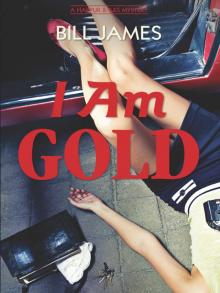 I Am Gold
I Am Gold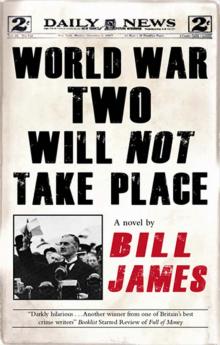 World War Two Will Not Take Place
World War Two Will Not Take Place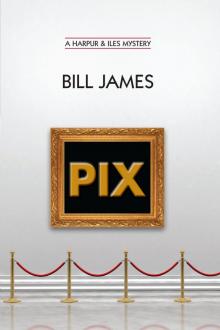 Pix (Volume Book 24) (Harpur & Iles Mysteries)
Pix (Volume Book 24) (Harpur & Iles Mysteries)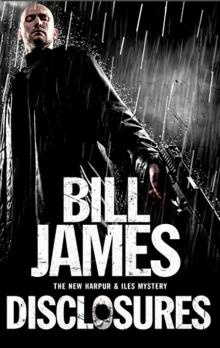 Disclosures
Disclosures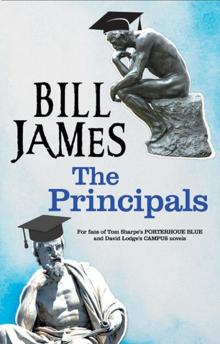 The Principals
The Principals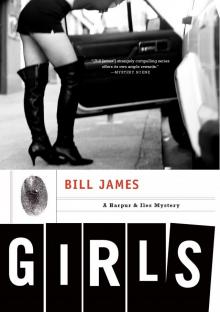 Girls
Girls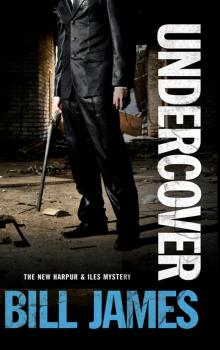 Undercover
Undercover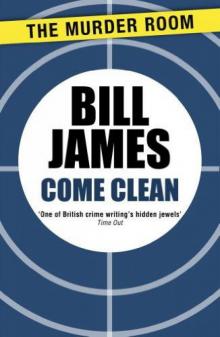 Come Clean (1989)
Come Clean (1989)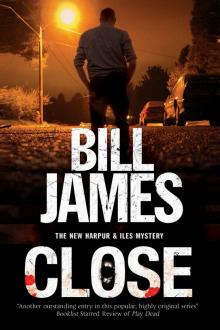 Close
Close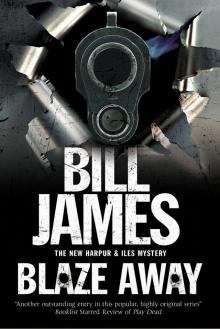 Blaze Away
Blaze Away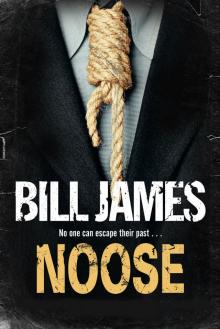 Noose
Noose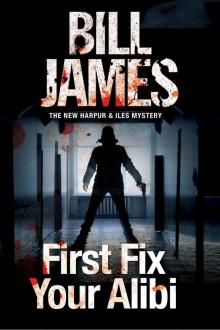 First Fix Your Alibi
First Fix Your Alibi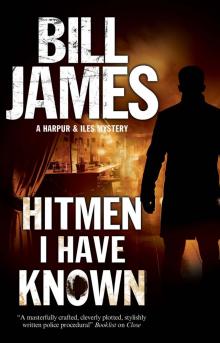 Hitmen I Have Known
Hitmen I Have Known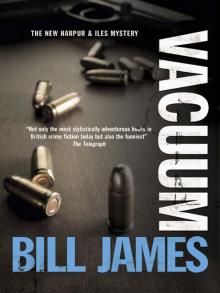 Vacuum
Vacuum Play Dead
Play Dead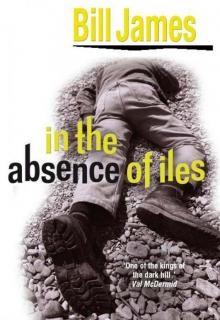 In the Absence of Iles
In the Absence of Iles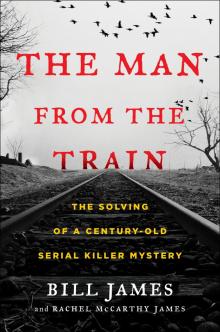 The Man from the Train
The Man from the Train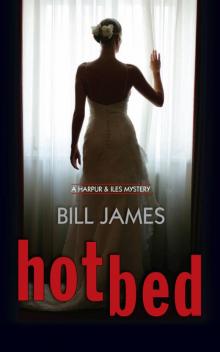 Hotbed
Hotbed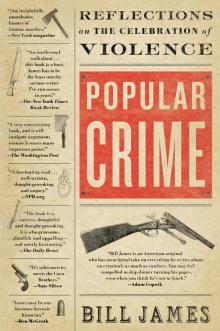 Popular Crime
Popular Crime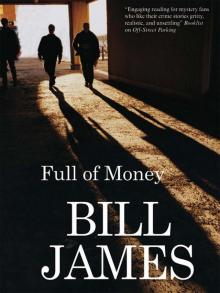 Full of Money
Full of Money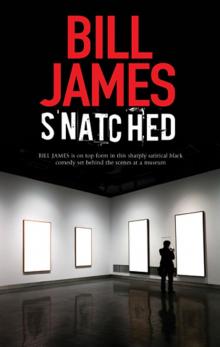 Snatched
Snatched